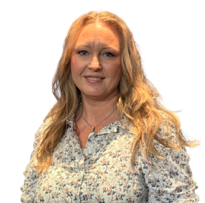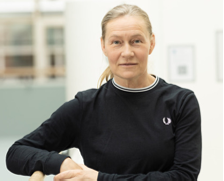Note: Cancelled
Call for Participation
Exploring Multilingual Conversational Practice with Spoken Dialogue Systems and Immersive Technologies
Tuesday, 24 June 2025, 08:30 - 12:30 CEST
Organizers
Elin Ericsson*, Ylva Hård af Segerstad*, and Mats Larsnäs**
*Department of Applied IT, University of Gothenburg, Sweden, and
**Company Mats Larsnäs
elin.ericsson@ait.gu.se
ylva.hard-af-segerstad@ait.gu.se
mats.larsnas@gmail.com
Aim of the Workshop
To share experiences and jointly explore the potential and challenges of AI and immersive technologies for language learning.
Expected Workshop outcome
The insights and discussions from the workshop will form the foundation of a research paper, which will be collaboratively developed by the workshop organizers and participants. This paper may be presented in HCI International 2026 and included in the Conference proceedings.
The workshop aims to:
- Introduce participants to cutting-edge spoken dialogue systems (SDSs), immersive technologies and their potential applications in language learning and HCI.
- Gather feedback on the experience of exploring a SDS, with and without head-mounted devices (VR).
- Foster interdisciplinary dialogue among various stakeholders, such as researchers, educators, and developers.
- Generate insights and ideas for a collaborative research paper to be submitted to the HCI Conference Proceedings.
Workshop topics
Participants are encouraged to submit papers on the following themes, but are not restricted to these topics:
- Integration of SDSs with embodied conversational agents (ECAs) in language learning
- Use of VR and AI in educational settings
- Challenges and opportunities in immersive language learning
- Case studies and best practices in HCI for language education
Workshop agenda
The following is a framework for the program of the Workshop:
|
Time |
Program event |
|---|---|
|
08:30-08:50 |
Welcome and introduction to themes contributed by participants |
|
08:50-09:30 |
Introduction to SDSs and high/low immersion VR Overview of SDSs, ECAs, and their applications in HCI and education Group organisation (A & B) |
|
09:30-10:30 |
Exploring the immersive SDS -Group A: Low-immersive language practice with ECAs in their preferred target language, followed by written reflection digitally. -Group B: High-immersive language practice with head-mounted devices, followed by written reflection digitally. |
|
10:30-11:00 |
Refreshment break |
|
11:00-12:00 |
Exploring the immersive SDS -Group B: Low-immersive language practice with ECAs in their preferred target language, followed by written reflection digitally. -Group A: High-immersive language practice with head-mounted devices, followed by written reflection digitally. |
|
12:00-12:30 |
Discussion and synthesis Group discussion on the challenges, opportunities, and potential applications of SDS in HCI. Contributions will be synthesised to outline potential research directions and documentation, including plans for collaborative writing of a paper drawing on the insights from the workshop. Adjourn |
Guidelines to prospective authors
Submission for the Workshop
Prospective workshop participants should submit their proposals in PDF format through the HCII Conference Management System (CMS).
Participants are invited to submit a two-page position paper about their experiences of using SDSs and Immersive Technologies for learning, preferably language learning, and how they look at the future in this regard. Participants are encouraged to submit papers on the following themes, but are not restricted to these topics:
- Integration of SDS and ECA in language learning
- Use of VR and AI in educational settings
- Challenges and opportunities in immersive language learning
- Case studies and best practices in HCI for language education
Submission for the Conference Proceedings
The contributions to be presented in the context of Workshops will not be automatically included in the Conference proceedings.
However, after consultation with the Workshop organizers, authors of accepted Workshop proposals who are registered for the Conference are welcome to submit, through the Conference Management System (CMS), an extended version of their Workshop contribution to be considered, following further peer review, for presentation at the Conference and inclusion in the “Late Breaking” volumes of the Conference proceedings, either in the LNCS as a long paper (typically 12 pages, but no less than 10 and no more than 20 pages), or in the CCIS as a short paper/extended poster abstract (typically 6 pages, but no less than 4 and no more than 11).
Workshop deadlines
|
Submission of Workshop paper |
15 May 2025 |
|
Authors notified of decisions on acceptance |
20 May 2025 |
|
Finalization of Workshop organization and registration of participants |
30 May 2025 |
Workshop organizers

Elin Ericsson holds a PhD in Applied Information Technology with a focus on Educational Sciences (Ericsson, 2023), still being affiliated to the Department of Applied IT, University of Gothenburg, Sweden. Her research explores the use of SDSs and interaction with ECAs for practising speaking foreign languages in everyday-life scenarios. More info about Elin.

Ylva Hård af Segerstad is Professor of Communication at the Department of Applied IT, University of Gothenburg, Sweden. Rooted in her background in linguistics, her research has explored the complex ways in which digital and mobile technologies transform human behaviour, communication- and learning practices. Her work on research ethics in internet studies has contributed extensively to the international research community. She has been involved in several research projects aimed at exploring innovative methodologies for language education and developing adaptive tools for language learning. More info about Ylva.

Mats Larsnäs is a pioneering educational technologist and entrepreneur who has explored VR/AR since 2015 through his company. His work spans medical orthopaedics, tourism, and advertising sectors, and as an educator, he has implemented numerous innovative projects in schools. His latest breakthrough combines VR and AI technology for language learning. More info about Mats.
Useful links and References
Dhimolea, T. K., Kaplan-Rakowski, R., & Lin, L. (2022). A systematic review of research on high-immersion virtual reality for language learning. TechTrends, 66(5), 810–824. https://doi.org/10.1007/s11528-022-00717-w
Ericsson, E. (2023). Experiences of Speaking with Conversational AI in Language Education. University of Gothenburg. https://gup.ub.gu.se/publication/333765
Ericsson, E. & Sofkova Hashemi, S. (2024). (Dis)engagement and usefulness: Students’ experiences of practising speaking German in a virtual 360-degree environment. Nordic Journal of Language Teaching and Learning. 12(1), https://doi.org/10.46364/njltl.v12i1.1229
ImmerseMe. (n.d.). VR-based language learning. https://immerseme.co
Koç, Ş. F, & Savaş, P. (2024). The use of artificially intelligent chatbots in English language learning: A systematic meta-synthesis study of articles published between 2010 and 2024. ReCALL (2024), 1–18 https://do.org/10.1017/S0958344024000168
Registration regulation
Workshops will run as 'hybrid' events. Organizers are themselves expected to attend ‘on-site’, while participants will have the option to attend either 'on-site' or 'on-line'. The total number of participants per Workshop cannot be less than 8 or exceed 25.
Workshops are ‘closed’ events, i.e. only authors of accepted submissions for a Workshop will be able to register to attend the specific Workshop, complimentary with their Conference registration.


